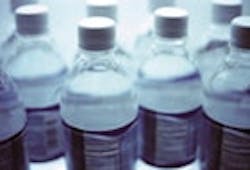Judge Issues Preliminary Injunction in New York State “Bottle Bill” Lawsuit
The U.S. District Court for the Southern District of New York issued a preliminary injunction on May 27 delaying the June 1, 2009, effective date of the Returnable Container Act ("Bottle Bill") and the requirement for New York-exclusive UPC Code labeling. Joining IBWA as plaintiffs in this lawsuit are Nestle Waters North America, Inc. and The Polar Corporation d/b/a Polar Beverages.
IBWA President and CEO Joseph Doss commented, "We are pleased and relieved that the Court recognized how impossible it would be for local, national and international bottled water companies to comply with the requirements of the new law by the June 1, 2009 deadline, which comes just weeks after passage of the bill."
In his bench ruling on the effective date issue, Judge Thomas P. Griesa stated, "The record would seem to demonstrate that this is a killing schedule." The Court requested both sides provide further information for a reasonable timeframe in which to enact a workable effective date.
The Court particularly noted that provisions of the statute that require a New York State-specific UPC code for all beverages subject to the Bottle Bill be halted. The Judge agreed with IBWA's claim that this provision violated the commerce clause of the U.S. Constitution and stated, "Regardless of the purpose of the legislature in enacting this provision, the provision is a violation of the commerce clause. It prohibits a sale of a commodity on the basis of the state borders. This is a violation of the commerce clause." Later, Judge Griesa added: "In the view of the Court, on the present record the plaintiffs not only have a likelihood of success, they are sure of success as a matter of law."
The new Bottle Bill imposes a number of different requirements on IBWA members, including the need to design new product labels, register those labels with the state, implement a distribution system that ensures New York-labeled bottles are offered for sale only in New York, and create a process to handle redemption of empty bottles by consumers. According to Doss, "IBWA members are unable to prepare for all these complex requirements in such a short time (less than 60 days after the law was passed). The original law provided the soft drinks and beer industries 15 months to comply with a far simpler system than the recently enacted changes."
While the new Bottle Bill applies to nearly all forms of bottled water, including flavored water, vitamin water and water containing artificial sweeteners, it creates an exception for bottled water products that have sugar added. The new Bottle Bill gives no reason why water with sugar should not be covered by the law when all other forms of water are covered. Indeed, the sugar water exception runs counter to the important environmental goals of the Bottle Bill. IBWA believes this arbitrary exception, which gives special preference to companies that sell sugar water products, violates the U.S. Constitution's Equal Protection Clause.
In his oral ruling, Judge Griesa did not expressly address the so-called "sugar water" exemption. However, it is expected to be included in his formal written order to be issued in the next few days.
The Bottle Bill, originally passed in 1982, is intended to encourage recycling and to reduce litter and waste. It requires consumers to pay a five-cent deposit when purchasing certain bottled beverages and permits consumers to obtain a refund of that deposit by returning the empty bottle to the retailer.
Source: IBWA
